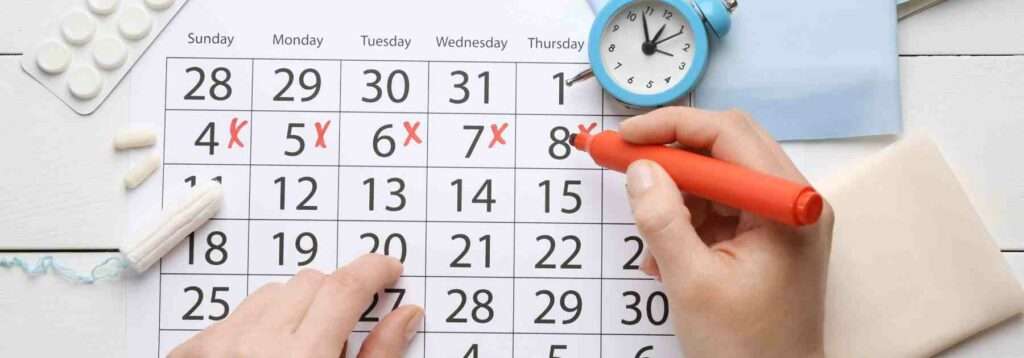R.M.Jones Pharmacy
Emergency contraception is a safe and effective way to reduce the risk of pregnancy after unprotected sex or contraceptive failure. However, one of the most common concerns people have after taking it is: “Does emergency contraception affect your period?”
The answer is yes — it can, and often does. These changes are usually short-lived and nothing to worry about, but knowing what to expect can help put your mind at ease. At R.M. Jones Pharmacy in Hay-on-Wye, we’re here to provide clear, supportive advice on what’s normal after taking the morning after pill, and when you might need to seek further help.
So, Does Emergency Contraception Affect Your Period?
Yes, emergency contraception can cause temporary changes to your menstrual cycle. The hormones in emergency contraception — whether it’s levonorgestrel (e.g. Levonelle) or ulipristal acetate (e.g. ellaOne) — work by delaying or preventing ovulation. Because your cycle is closely linked to ovulation, shifting this process can lead to changes in the timing, flow, or nature of your next period.
These effects are not a cause for concern and usually settle by your next cycle.

What’s Normal After Emergency Contraception?
Here’s a helpful guide to what you might experience after taking the morning after pill:
✅ Your period comes a few days earlier or later
It’s very common for your next period to arrive slightly earlier or later than usual. A delay of up to 7 days is generally considered normal.
✅ Your flow is lighter or heavier than usual
The hormonal dose can influence the thickness of the uterine lining, which may result in a shorter, lighter period — or sometimes a slightly heavier one.
✅ You experience light spotting
Some people notice spotting or light bleeding before their actual period arrives. This is also normal and not necessarily a sign of pregnancy.
✅ You feel mild cramping or PMS-like symptoms
Hormonal fluctuations may cause you to feel bloated, moody, or crampy — just like in a regular cycle.
✅ Your cycle returns to normal the following month
Most people find that by their next period, things have gone back to normal. If not, it’s worth having a chat with your pharmacist or GP.
What’s Not Normal – When to Seek Help
While most post-pill symptoms are mild and temporary, there are times when you should get checked:
⚠️ Your period is more than 7 days late
If your period is a week late or more, we recommend taking a pregnancy test to be sure. Emergency contraception is very effective, but no method is 100% guaranteed.
⚠️ You’re experiencing severe abdominal pain
This could be a sign of something more serious, such as an ectopic pregnancy. Always seek medical advice if your pain is sharp or doesn’t ease.
⚠️ Your bleeding is unusually heavy or prolonged
Heavy bleeding that soaks through a pad or tampon every hour for several hours, or bleeding that lasts more than a week, should be assessed by a healthcare professional.
⚠️ You’re worried about repeated use
Emergency contraception is safe for occasional use, but if you find yourself relying on it regularly, our pharmacists can help you explore long-term contraceptive options that better suit your lifestyle.

Tips for Tracking Your Cycle Post-Pill
After taking emergency contraception, it’s helpful to keep an eye on your menstrual cycle. Here’s how:
-
Mark the date you took the pill
-
Note any spotting or unusual symptoms
-
Track when your next period arrives
-
Use a period tracking app to monitor changes
Keeping track can help reduce anxiety and give you a clearer picture of how your body responds.
Need Reassurance? We’re Here to Help
At R.M. Jones Pharmacy, we know that taking emergency contraception can be an emotional experience. That’s why we offer discreet, supportive advice and access to trusted brands like ellaOne. Whether you need help choosing the right product, understanding side effects, or figuring out what’s going on with your period, our team is here for you — no appointment needed.
If you’re still wondering “does emergency contraception affect your period?”, the answer is yes — but in ways that are usually mild, temporary, and manageable.
If you’ve taken emergency contraception and have questions about what comes next, don’t hesitate to speak to us. We offer confidential support, emergency contraception consultations, and advice on all aspects of reproductive health. You’re not alone — we’re here to guide you every step of the way. Reach out today.

This blog was written on behalf of R. M. Jones Pharmacy by Pharmacy Mentor.

